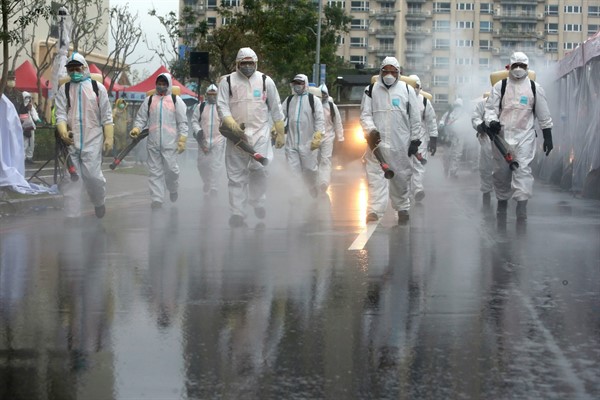In the fight against the coronavirus pandemic, the odds were never in Taiwan’s favor. An island just 80 miles off the coast of China, it has extensive business and cultural ties with the mainland, where hundreds of thousands of its citizens live or work. The first cases of COVID-19 were reported in the central Chinese city of Wuhan just before the Lunar New Year holiday, a busy travel season for millions of people on both sides of the Taiwan Strait. When researchers from Johns Hopkins University modeled the projected contagion of the virus in January, they assessed that Taiwan had the second-highest level of risk for imported cases.
Yet Taiwan has managed to effectively limit the coronavirus’s spread, recording only 382 confirmed cases and six deaths so far—much fewer than neighboring countries like South Korea, Thailand and Japan. The key was a rapid-response containment strategy based on lessons learned from the SARS epidemic of 2003, which also originated in China and which killed 73 people in Taiwan. Soon after the Taiwanese government picked up early warning signs of a novel coronavirus in Wuhan last December, it implemented targeted border checks; contact tracing based on data analytics; and a clear, consistent public communication regimen.
It did all of this with no help from the World Health Organization, which does not count Taiwan as a member, despite affirming in its constitution that “the extension to all peoples of the benefits of medical, psychological and related knowledge is essential to the fullest attainment of health.” The Chinese Communist Party, which considers Taiwan part of its territory even though it has never controlled the island, exerts pressure on other member states to exclude Taiwan from the WHO and other parts of the United Nations. As a result, Taiwanese officials say that they were largely kept out of the loop about the spread of COVID-19.

